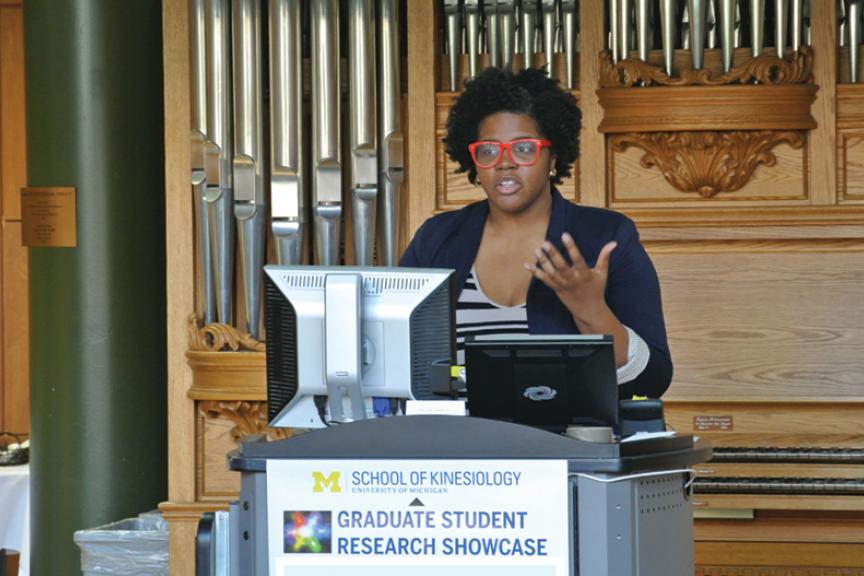
PhD Program

Program Overview
Students pursuing a PhD in Sport Management develop scholarly and research competence, culminating in an original doctoral dissertation contributing to the body of knowledge in sport business. The program is designed for students who intend to make their careers as scholars, teachers, researchers, and professionals in economics, marketing, philanthropy, and urban development, as they pertain to sport business.

Each doctoral student works closely with a faculty advisor from the beginning of their degree program. Under their faculty advisor’s guidance, they are expected to take relevant coursework, engage in relevant research experiences (lab rotations, independent study projects, etc.), generate research ideas, and complete a research dissertation prior to graduation.
A principal goal of doctoral student training is achieving competence as an independent scholar. This entails not only proficiency in research but in the dissemination of knowledge. To achieve this, students learn to guide the learning of others as a Graduate Student Research Assistant (GSRA) or Graduate Student Instructor (GSI).
Doctoral students and their faculty advisors will form a Guidance Committee, Qualifying Examination Committee, and a Dissertation Committee to provide advice and evaluate student progress at successive stages of the program.
Sport Management PhD Curriculum
PhD students choose from a set of core courses in Kinesiology, as well as cognate courses from other units, and complete a minimum of 30 pre-candidacy credits beyond the master's level. Qualifying examinations must be passed before advancing to candidacy, after which the student completes an original doctoral dissertation. A minimum of 50 credits including pre-candidacy and candidacy work must be completed to graduate.
The courses you take will vary, depending on your educational goals. Courses taken for graduate credit will carry SM or KINESLGY program codes, and are numbered 500 and above.
Sport Management Graduate Faculty
Our Sport Management graduate faculty are leaders in their fields, and have a variety of interests and specialties. View the SM graduate faculty list.
Forms & Bulletins
Bulletins contain important information about graduate study at the University of Michigan School of Kinesiology. They provide key information about academic program requirements, rules, and regulations of our School. Please also consult U-M’s Rackham School of Graduate Studies website at rackham.umich.edu for more expansive and detailed information.